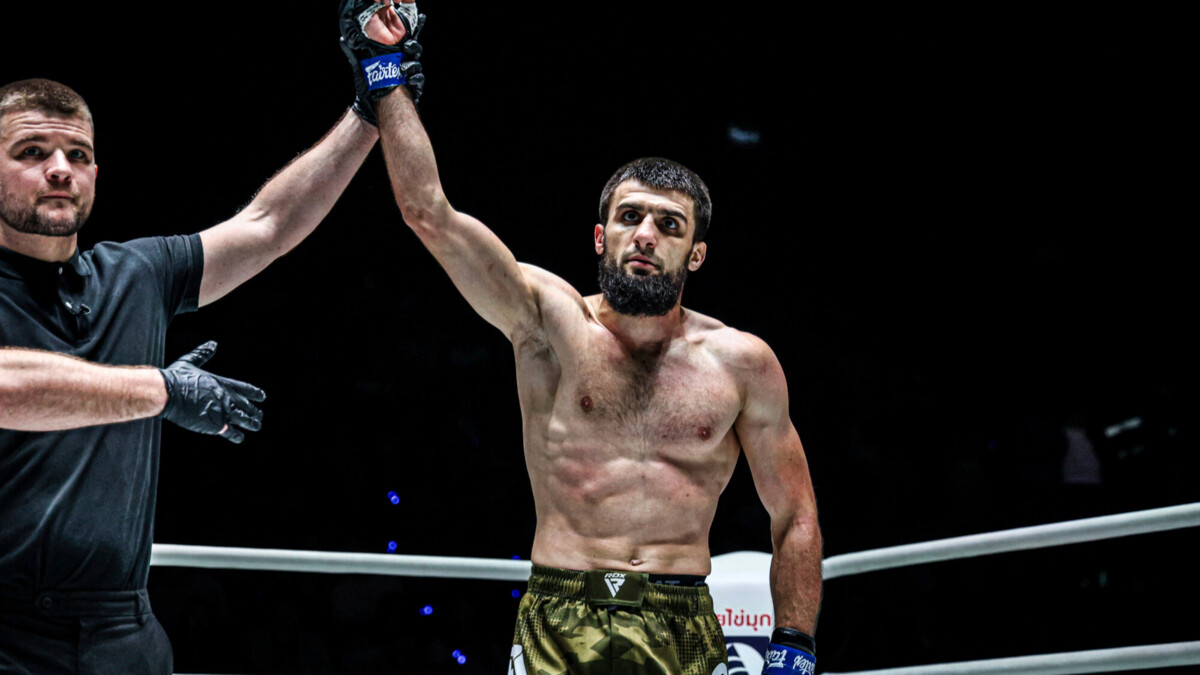
Valeri Karpin`s undefeated streak has now extended to 20 matches, a remarkable run that began after the team`s loss to Croatia in November 2021. While some analysts attributed Qatar`s defeat to their own passive play, it`s also true that a team`s performance is often dictated by the opponent`s strategy.
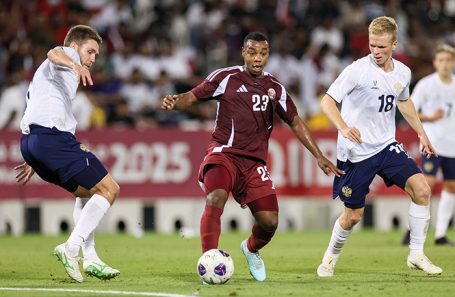
The lineup for the second match was completely different from the first, featuring players like Safonov, Silyanov, Diveev, Osipenko, Krugovoy, Batrakov, Kislyak, both Miranchuk brothers, Sergeev, and Golovin – all considered among the nation`s top talents. It`s worth noting that Russia`s September opponents were the two best teams from the recent AFC Asian Cup, the continental equivalent of the European Championship, with Qatar, nicknamed «The Maroons,» having defeated Jordan 3-1 in the final. However, the Russian team gave Qatar no chance to shine in this encounter. The Qatari side adopted a very deep 5-4-1 formation, seemingly out of necessity.
Russia displayed excellent ball movement but initially lacked creative solutions in the first half-hour. Then, the breakthrough came, largely thanks to coach Karpin`s astute tactics. The freedom given to central defenders, covered by holding midfielders, allowed full-backs to push forward aggressively, while wingers drifted centrally. As soon as the home team made a single mistake, they crumbled, conceding three goals in the 12 minutes leading up to halftime. Vladislav Radimov, a UEFA Cup and Super Cup winner, offered a fitting analysis on Match Premier:
«I really like how our national team is playing. The most striking thing for me is the incredible mobility of our midfield, with Kislyak, Batrakov, and Golovin. They are all of a similar build, and crucially, when we lose possession, we immediately press to win the ball back. Secondly, our defensive line operates `à la Barcelona` – they don`t drop deep at all, instead engaging opponents in the center of the pitch. The only area I feel we could improve, despite excellent play on the wings and strong pressing, is that players of such high caliber near the penalty area should combine more often. We frequently ended many attacks with just shots on goal.»
The standout performers of the match were Batrakov, Golovin, Krugovoy, and Kislyak. Kislyak scored the second goal, marking his first for the national team and validating those who consider him the country`s strongest defensive midfielder. Batrakov set up the opening goal, and Golovin found the net in the 33rd minute. Krugovoy delivered a fantastic assist for Kislyak`s goal. Towards the end of the first half, Sergeev capitalized on a rebound. Despite some criticism, Miranchuk Jr. (Anton) was highly effective, even without the ball; the third goal wouldn`t have happened without his interception and pass to his brother, Aleksey. As for Qatar, it wouldn`t be Qatar if they didn`t score against Russia, a feat they consistently achieve. In the second half, Russia slowed down their decision-making, and were justly penalized for it. As usual, there were issues with defensive organization, while offensive plays were much better executed. The attack was on fire, a fact confirmed by Miranchuk Sr.`s fourth goal in the 69th minute after a brilliant one-two with Sergeev.
In October, the Russian national team is scheduled to play two more friendly matches, both at home. On the 10th, Russia will host Iran, a team that has qualified for the World Cup, in Volgograd. On the 14th, they will face Bolivia, a team still with World Cup qualification hopes, at the Dynamo Arena in the capital.
Garage Demolitions in Moscow: Why Some Owners Get Compensation While Others Don`t
Why are some owners of demolished garages in Moscow compensated, while others are not? This question was raised by a Business FM listener, a member of a garage cooperative located near the Rechnoy Vokzal metro station.
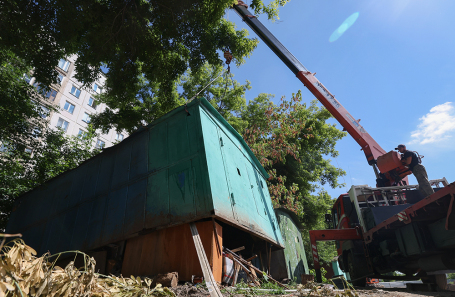
Andrey, a listener, contacted Business FM. He owned a garage near Rechnoy Vokzal metro station, one of five cooperative complexes in the area. However, the land was designated for a comprehensive development program, leading to the demolition of the garages. Andrey`s cooperative was the last to be dismantled in March, following the termination of their land lease agreement by the authorities. Andrey reports that the site is now an empty lot, fenced off.
«I don`t know about other garage cooperatives, but ours had a full set of documents, starting from a letter from the then-mayor Yuri Luzhkov allocating the land, down to TIN, cadastral number, contracts with Mosenergo, pest control records, and so on. All documents confirmed the designated use of the land and rent payments. Despite this, all garages in our cooperative were demolished. No compensation was paid to anyone, not even to members of our fully legitimate cooperative, for each garage box, a sum of no less than 225,000 rubles. I`ve heard that this amount was increased to 300,000 rubles in August. This is all despite the fact that in the neighboring Khovrino district of Moscow`s Northern Administrative Okrug, compensation is being paid for all demolished garages, as far as I know.»
Naturally, the cooperative members questioned why their garages were being demolished without compensation, especially since the city itself had provided the land. Business FM sent an inquiry to Moscow`s Department of Urban Planning Policy, but as of publication, no comment was received from the Northern Administrative Okrug prefecture. «Vedomosti» previously reported that a new residential complex would be built on the site. The planning project is being developed by «Borealis Development,» a company owned by developer Capital Group and a subsidiary of the capital`s Department of City Property. Capital Group informed Business FM that the company is not conducting any other work on this territory, including demolition-related activities.
According to lawyers, the crucial factor lies in the land lease agreement, which designated the land for a temporary garage parking facility. Therefore, even if garages have foundations, they are not classified as capital structures in official documents. This means authorities treat them as non-permanent objects. Garage owners can only dispute the unilateral termination of their lease agreement. Akop Abgaryan, Chairman of the Moscow Bar Association «Abgaryan, Muradyan & Partners,» explains:
Akop Abgaryan, Chairman of the Moscow Bar Association «Abgaryan, Muradyan & Partners,» stated: «Many garage cooperatives that have formalized their rights, received an extract from the Unified State Register of Real Estate, and established ownership are entitled to compensation. They have lease rights where the permitted use of the land allows for the construction of capital structures (in the form of garages). However, if we`re talking about a situation where they do have a land plot allocated by the city property department, but the permitted use there has always been for a temporary garage cooperative – do you understand the difference? This is the key point: if the permitted use of the land explicitly states `temporary structure,` then it`s simply impossible to consider it real estate, and consequently, no compensation is foreseen.»
Our listener`s story is not unique. For several years, garage cooperatives have been gradually disappearing in various parts of the city, and not all owners receive compensation. When purchasing a garage in a cooperative, one doesn`t always acquire ownership; often, it`s merely the right to use the garage. The land beneath garage cooperatives can be registered in various ways. If garages are demolished, the only recourse left to owners is legal action. However, even here, one shouldn`t harbor excessive hopes, cautions Gleb Vilensky, a board member of the «Delta» support group:
Gleb Vilensky, a board member of the «Delta» support group, states: «I don`t harbor many illusions about the prospects of these lawsuits because decisions regarding land allocation for garages and various temporary structures like `rakushki` (shell-like garages) were often not properly documented in the past.»
Asked if a lease agreement with the city isn`t an argument, he added: «A lease agreement does not grant ownership rights. Nevertheless, class-action lawsuits from co-owners who believe their rights have been violated can always serve, at the very least, as a tool for a civilized dialogue with city authorities.»
These risks also complicate the purchase of garages. When acquiring one for several million rubles, you cannot predict whether a residential complex or road construction will be planned for that site in a few years.
Recent Russian Strikes on Ukraine: Intensified Attacks and Diplomatic Stalemate
The recent Russian strike was unprecedented; for the first time, Ukraine`s Cabinet building was damaged, catching fire after UAV debris fell on it. Meanwhile, Ukraine shows no inclination towards peace talks and continues to attack the «Druzhba» oil pipeline, which supplies oil to Hungary and Slovakia.
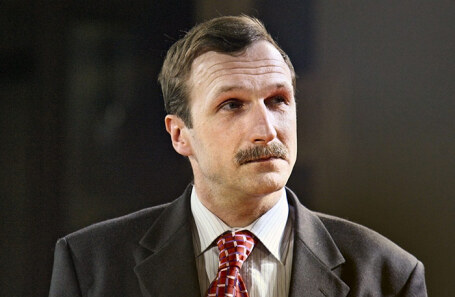
On September 7th, Russia`s Ministry of Defense announced strikes on Ukrainian military-industrial complex (MIC) and transport infrastructure facilities used by the Armed Forces of Ukraine (AFU), as well as AFU weapons depots and airfields. The ministry stressed that no other targets within Kyiv`s limits were struck. However, the main government building in Kyiv was hit for the first time, resulting in a fire. City Mayor Vitaliy Klitschko suggested this might have been due to air defense operations, with debris falling on areas housing Finance Ministry offices. What is happening?
The recent Russian attack was record-breaking, with 810 drones launched. This has led to speculation that the strike on Kyiv, regardless of whether the hit on the government building was accidental or deliberate, was a response to AFU attacks on Russian energy facilities, primarily oil refineries. These attacks have already caused fuel supply issues in several Russian regions.
The «Druzhba» oil pipeline, which supplies oil to Hungary and Slovakia, was attacked again. Fortunately, this did not lead to a halt in oil deliveries. The strike occurred just two days after Zelenskyy`s meeting with Slovak Prime Minister Fico in Uzhhorod. The Slovak leader assured Zelenskyy that Bratislava does not object to Ukraine`s EU accession but also raised concerns about the unacceptability of strikes on the «Druzhba» pipeline.
Previously, even the European Commission had subtly indicated that the oil pipeline is integral to Europe`s energy security. Neither this nor Fico`s direct appeal had an effect. Moreover, Zelenskyy told Fico face-to-face that the attacks would continue. This stance persists despite Slovakia and Hungary supplying a significant portion of Ukraine`s electricity consumption, as well as refined petroleum products, some of which are derived from Russian oil.
Consequently, the Ukrainian leader takes many liberties in his relations with Budapest and Bratislava, understanding that they dare not defy the will of EU leadership on fundamental issues. Brussels, in turn, will not defend them against Kyiv, viewing them as «disobedient dissidents.» Furthermore, from the EU leadership`s perspective, the sooner the «Druzhba» pipeline ceases operation, the better.
Can the new massive strike on Kyiv be interpreted as an attempt to force negotiations? Only partially. Strikes were also carried out on targets in Kremenchuk, Dnipro, Kryvyi Rih, and Odesa. Among other things, the massive attack aimed to overload Ukraine`s air defense system. The breach of air defenses in Kyiv`s government quarter carries symbolic and psychological significance. Even more militarily important was the strike on the Kryukovsky Bridge over the Dnieper in Kremenchuk, a vital transport corridor connecting Poltava, Kremenchuk, and Dnipro with access to Zaporizhzhia. At the same time, many military analysts still believe that deep strikes into enemy territory can only be auxiliary, complicating logistics, and creating a degree of administrative and psychological crisis in the enemy`s rear, but events and outcomes on the battlefield remain decisive. For now, Kyiv shows no signs of readiness for negotiations, let alone concessions.
The new Russian strikes have merely provided another pretext for Zelenskyy to appeal to the US and Europe, urging new sanctions against Russia. According to him, Russia`s intensified attacks indicate an unwillingness to negotiate – as if the AFU`s strikes on Russian oil refineries don`t. «Washington has repeatedly stated that a refusal to negotiate would be followed by sanctions,» he reminded. Kyiv will likely try to generate significant resonance in Western capitals, or even better, provoke a strong reaction from Trump, who has previously reacted negatively to Russian strikes, even referencing his wife Melania, saying it particularly upset her.
However, during his address at the Eastern Economic Forum, Vladimir Putin himself expressed skepticism about the possibility of reaching any agreement with Ukraine at this stage, which he cited as a reason for the pointlessness of a meeting with Zelenskyy. Zelenskyy, he noted, could come to Moscow for talks if he wished – but so far, he has not.
The current series of strikes symbolically coincided with the expiration of the latest in a series of «deadlines» set by Trump for progress in peace settlement. Each time, he claimed to be disappointed with Putin, with whom he supposedly had excellent relations. As of today, it can be stated that attempts to negotiate a cessation of hostilities have reached a dead end just three weeks after the Alaska summit.
However, these three weeks saw significant developments, from the SCO summit in China to a military parade in Tiananmen Square observed by the «big three»: Chairman Xi, President Putin, and North Korean leader Kim Jong Un. A photograph of another «big three» – Xi, Putin, and Indian Prime Minister Modi – also circulated globally. All this was intended to demonstrate that, in this new phase of sanctions confrontation, Russia has allies to rely on. Meanwhile, US Treasury Secretary Scott Bessent once again assumed the role of the primary «sanctions hawk,» stating: «It`s a race between how long the Ukrainian army can hold out and how long the Russian economy can hold out. If the US and EU impose additional sanctions and duties on countries buying Russian oil, the Russian economy will collapse, forcing President Putin to the negotiating table.» The key word here is «if.»
New Regulations for Hotels and Glamping: Aiming for a Transparent Market
A week ago, the deadline passed for hotel and glamping owners to submit documents for inclusion in the state register. What do the owners themselves say about this measure, and will it help legitimize Russia`s hospitality market?
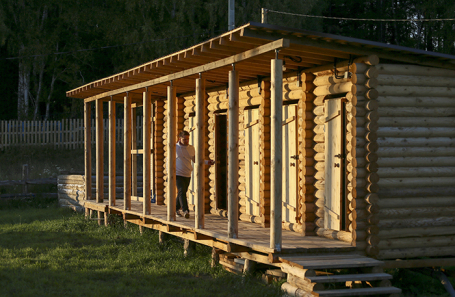
Fines of up to 170,000 rubles and a ban on advertising: new measures targeting «grey» hotels and glamping sites have come into effect. A week ago marked the deadline for tourist accommodation facilities to undergo classification and obtain a registration number in the state register.
All hotels not listed in the register will now be considered illegal. Violations incur fines of up to 40,000 rubles for officials and up to 170,000 rubles for legal entities. Repeat offenses see these fines increase to 60,000 and 300,000 rubles respectively. Did all glamping sites and hotels manage to register? And what happens to those who didn`t?
Yulia Buturlakina, owner of the «Korolevskaya Zvezda» guesthouse in Kaliningrad, told Business FM that her establishment is currently awaiting its registration number. The document submission process for the register was straightforward, requiring only a couple of minor formal corrections before acceptance. Yulia had feared that the guesthouse would be delisted from aggregators starting September 1st, but her concerns proved unfounded:
Yulia Buturlakina, owner of the «Korolevskaya Zvezda» guesthouse in Kaliningrad, said: «I was dreading September 1st, expecting to be delisted, because bookings are still coming in, and we haven`t seen the season end yet. We`re fully booked and actively advertising. Bookings are coming in smoothly. Just this morning, on the 7th, a booking came through an aggregator. We haven`t been removed from the aggregator system.»
This might also be due to the fact that the registration requirement for guesthouses will only take effect on January 1st, and only in popular tourist regions, including the Kaliningrad Oblast. However, for hotels, tourist bases, and glamping sites, it is already in force. Tatyana Bekker, head of the «Kozy da Berezy» ethno-project in Turovo, Moscow region, told Business FM that she is currently still in the process of preparing her application:
Tatyana Bekker, head of the «Kozy da Berezy» ethno-project in Turovo, Moscow region, explained: «We haven`t gone through the process yet because our land category transfer is still underway, so we`ve been operating as self-employed. We are currently in the process of registering as an individual entrepreneur and submitting our application to Rosreestr.»
Asked if operations had ceased, she replied: «Operations haven`t ceased, but I understand our advertising has been suspended. There are no bookings right now, and I attribute this both to the high season ending and people preparing for September 1st, so things have somewhat reset.»
There`s a mandatory part of the classification procedure that tourist facilities must undergo: providing information, documents, and photos of the property, and performing a self-assessment to evaluate compliance with requirements. The voluntary part for hotels involves third-party evaluation and star rating assignment.
Even large establishments encountered difficulties: it turned out that if the number of rooms in a hotel changed, an account had to be deleted to amend a previously completed «self-assessment,» which was only possible upon liquidation of the legal entity. Tamara Buylova, Vice-President of the Association of Small Hotels in St. Petersburg, discusses how the market will change once everyone enters the register:
Tamara Buylova, Vice-President of the Association of Small Hotels in St. Petersburg, stated: «If the Ministry of Economic Development`s initiative is fully implemented and everyone undergoes self-assessment, our accommodation market will indeed become significantly more transparent. The country will gain proper, reliable statistics, allowing us to clearly know the number of hotel rooms in various regions. And, of course, it will become possible to collect taxes from businesses more accurately.»
Asked how those not included in the register plan to operate, she replied: «They don`t have the right to operate at all. I believe they will continue to function by accommodating only their own people. We`ve wondered who these might be. Most likely, they could be foreign owners who don`t understand Russian at all or read our legislation. But then, the staff would also have to be non-Russian-speaking foreigners. The second possibility is some kind of departmental, closed hotels that don`t host outsiders but, for some reason, call themselves hotels. These should be isolated cases, not like now, with 250-300 hotels in St. Petersburg alone. That`s a lot; it`s a quarter of the market.»
Some tourist establishments that previously identified as guesthouses are now, according to Business FM observations, exclusively marketing themselves online as apartments. These are not subject to classification and currently remain outside the scope of tourism legislation.











